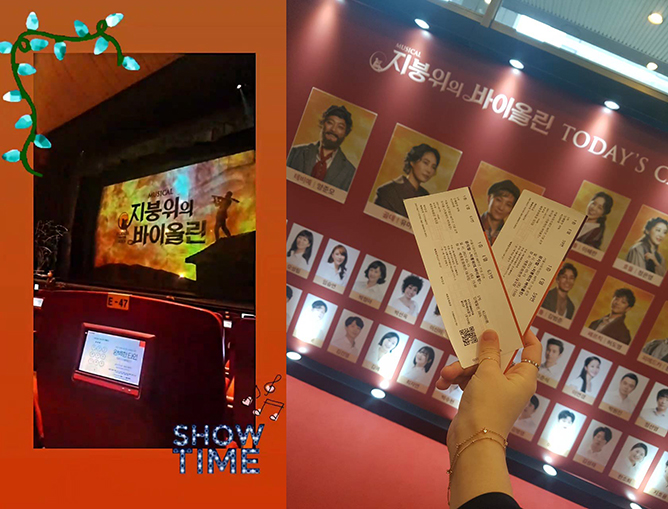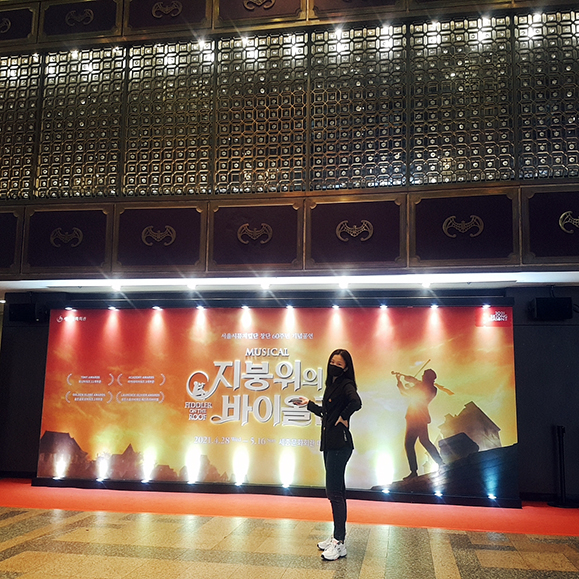COVID-19 has reduced the availability of many types of entertainment. But, I stumbled upon a musical called “Fiddler on the Roof” (지붕위의 바이올린 in Korean) recently while I was surfing on Google. It piqued my interest, so I instantly shared it with my family, who were also eager to watch a musical.
The Fiddler was performed at the Sejong Center for the Performing Arts. As I walked into the theater, I was immediately taken aback by the massive interior, with its dark but powerful atmosphere. My family and I sat in the front row of the first floor of the theater. We were thrilled when a little monitor began delivering instructions, indicating the start of the show.

The performance started a few minutes later. The light dimmed, and a violinist emerged in the darkness, playing pleasant music. The melody was intricate yet hauntingly gloomy, setting the stage for the tragedy to come.
The story takes place in Tsarist Russia, under Tsar Nicholas II. A shtetl (small municipalities in Russia with mostly Jewish residents) appeared on the stage. The residents of the shtetl walked about singing, clad in early twentieth-century Russian clothing. I was immediately pulled into a bygone era in Russia, rich in cultural and historical detail.
All is not well, however, in the shtetl. The dark cloud of antisemitism, driven shrill by the collapsing economy under the Romanov rule, is spreading over the shtetl. Even though shtetls were hamlets where Jews were allowed to legally reside, it was also in shtetls where most of the pogroms (mass massacres) happened. Shtetls began to disappear as anti-Semitic legislation became more stringent. Tevye, a rural milkman, tries valiantly to retain his Jewish religious and cultural traditions in the face of the gathering storm of yet another wave of antisemitism. Above all, he is terrified that he may not be able to keep his family together. Vocalists' frenzied and high-pitched voices, coupled with the gentle and sad violin melody, expresses the dread the Russian Jews feel.
Gradually, the violin’s tone becomes somber, signifying that it was time for the shtetl residents to leave their homes and scatter in the winds. A melancholic melody by a violin hovers off the stage as the villagers pack their belongings and say their final goodbyes, pledging to see one another again even though everyone knows it is highly unlikely.
Following the show, I learned that many Jews were forcibly removed and separated from their families at a young age during that time period.

The sad story and the haunting violin melodies made me feel as though I was one of the townsfolk who were forcibly exiled. I would definitely advise you to watch the musical. You will be transported to another world, a world of persecution, hopeless goodbyes, and uncertain future, that is so different from ours but was once so real.

Minji Kwon
Junior (Grade 11)
Seoul Scholars International

